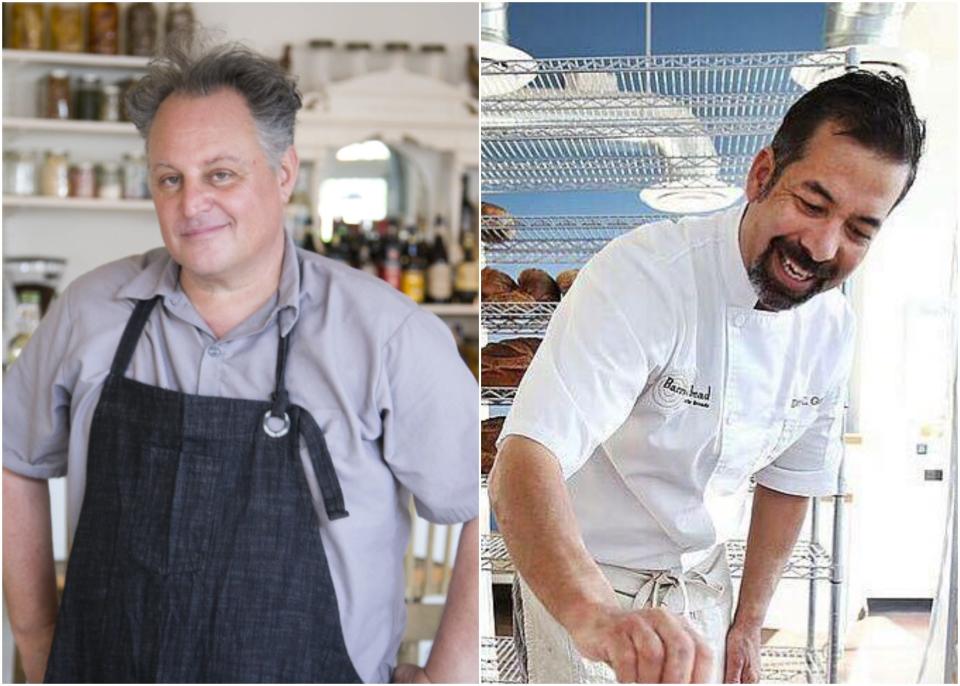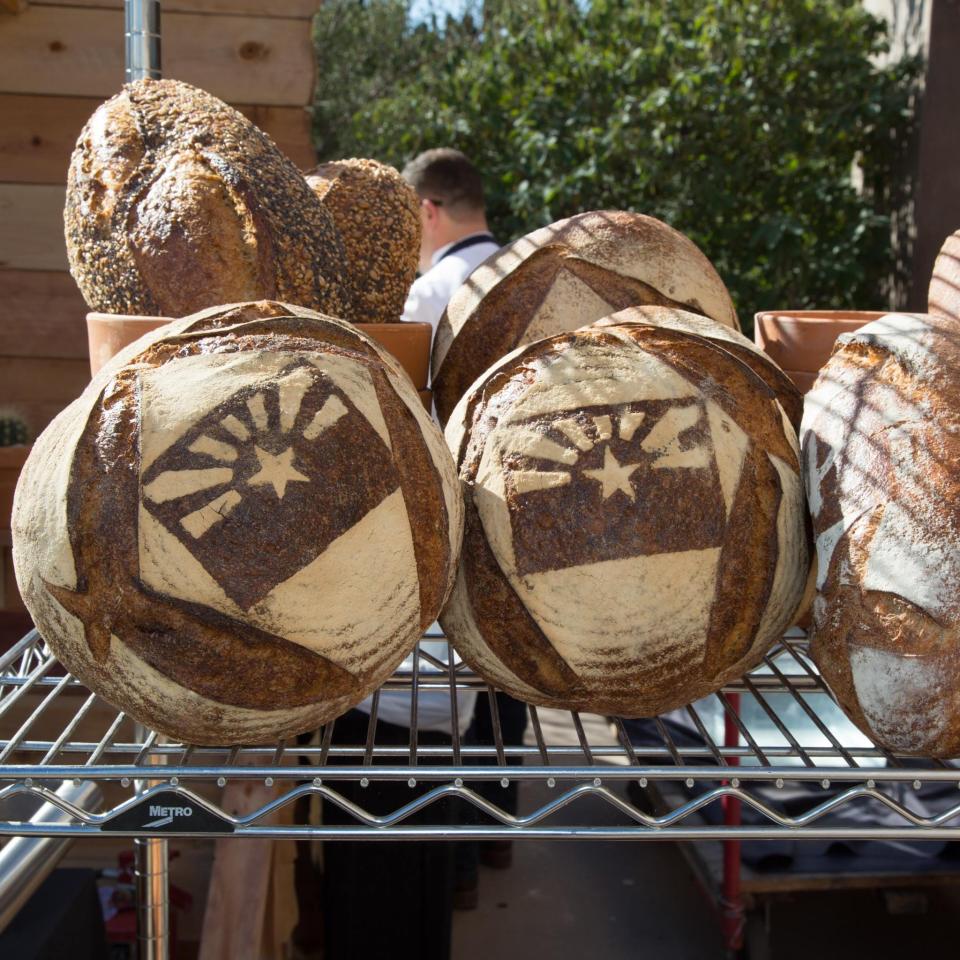They won big at the Oscars of food. How 2 Arizona chefs use that clout to help farmers
More than 30 years ago, Don Guerra opened a bag of flour and began to wonder about its origin.
It wasn't until almost 20 years later that he started to unpack the question.
One evening, he made bread with White Sonoran wheat, a heritage grain that a local farmer brought to his bakery, Barrio Bread in Tucson. He said he fell to his knees because he was stunned by the grain.
"I was like, 'Whoa, this is about to change everything.' It was that powerful," he said.
He felt the same way when he accepted the Outstanding Baker award at the James Beard Foundation ceremony in Chicago on June 13. Chris Bianco, the owner of Pizzeria Bianco in Phoenix, was named Outstanding Restaurateur that day.
2022 James Beard Awards: These Arizona food icons took home major honors
'I feel a responsibility and obligation'

That national recognition helps highlight Guerra's and Bianco's efforts to build a local grain industry in a region where some people might not know farming has thrived for centuries.
For years, Bianco and Guerra have worked alongside local farmers, research organizations and others in the food industry to help build a sustainable grain economy in Arizona, one in which grains are harvested and milled a short distance from bakers' ovens.
"I always try to find a way to incorporate what grows in our backyard," Bianco said. "I feel a responsibility and obligation to people."
For over three decades, Bianco has included ingredients such as White Sonoran and Desert Durum wheat, mesquite flour and heirloom corn in his dishes.
"I was always like with farmers, 'If you grow, we'll try our best not to screw it up,'" he said.
'I want it to feel sincere': Chris Bianco opens a pizzeria in LA
How wheat seeds came to southern Arizona
Guerra said Arizona is a premier grain-growing region, even if many people don't realize it.
"I've never understood that. But Father Kino, in the late 1690s, kind of proved it," he said.
When Eusebio Francisco Kino, a Jesuit missionary from Europe, arrived in what is now southern Arizona and northern Sonora, Mexico, during the 17th century, he brought wheat seeds in his saddlebags.
As he established missions throughout the Pimería Alta area, he introduced wheat-based agriculture to the Pima and Tohono O’odham people, according to Native Seeds/SEARCH, a nonprofit in southern Arizona that conserves heirloom seeds and foods.
The wheat was grown to provide flour for communion wafers. Later, White Sonoran wheat became a symbol of the borderlands because it could be grown without intensive waster use, and it replaced corn in many traditional dishes, according to Native Seeds/SEARCH.
My grandma's legacy: How to make Navajo steamed corn stew
'I can imagine my ancestors making their food with it'

Guerra and Bianco came across White Sonoran wheat through Native Seeds/SEARCH when the group received a $49,950 grant from Sustainable Agriculture Research and Education, funded by the U.S. Department of Agriculture, in 2012.
The group partnered with local farmers to revive the growing, milling, distribution and marketing of Chapalote flint corn and White Sonoran wheat. Both grains had become commercially unavailable by 1975 due to increased irrigation when mechanized agriculture became widespread, according to Native Seeds/SEARCH.
"I can imagine my ancestors making their food with it," said Guerra, whose family is from that region. "So this is just, for me, a chance to keep that sort of culinary tradition alive, well and moving into the future."
A decade later, local farmers are growing the wheat throughout Arizona. It's making its way into restaurants, bakeries and breweries.
Consumers can buy White Sonoran wheat seeds and other heritage grains online from Native Seeds/SEARCH and other online resources. White Sonoran wheat flour and wheat berries are available at https://haydenflourmills.com, https://store.ramonafarms.com and https://www.sanxaviercoop.org.
"There's kind of like a resurgence," Guerra said.
There's still work to be done
When Guerra first encountered White Sonoran wheat, he knew he would build a business model on it.
"I was going to work tirelessly to partner with farmers, seed savers and other people to make this bread for my community and celebrate it," he said.
But there's still work to be done, such as educating the public about where their food comes from, growing more grains, ensuring local ingredients are accessible and keeping dollars in the community.
"I feel like my work is beginning," Guerra said.
Details: Barrio Bread, 18 S. Eastbourne Ave., Tucson. 520-327-1292, barriobread.com. Pizzeria Bianco, 623 E. Adams St., Phoenix. 602-258-8300, pizzeriabianco.com.
'I want it to feel sincere': Chris Bianco made good on his promise to open a pizzeria in LA
Reach the reporter at [email protected] or on Twitter @Jonmaesha.
This article originally appeared on Arizona Republic: James Beard Award winners celebrate Arizona heritage grains
